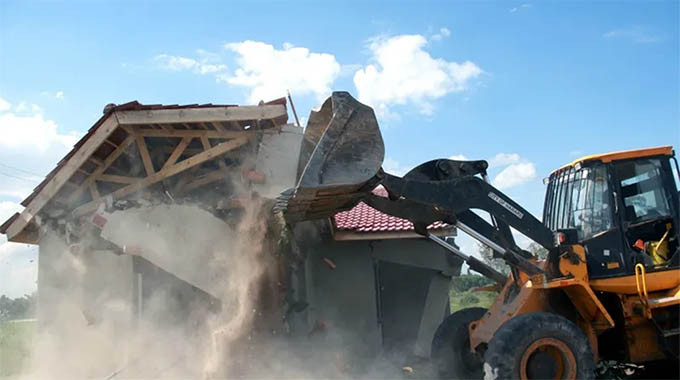
WHAT Zanu-PF is today is reflective of what it has been since its inception; a military or militant party sustained by violent historical links to the war of liberation.
GUEST COLUMN: GIBSON NYIKADZINO
In today’s post-colonial era, the party has failed to transform and rebrand from a liberation movement or military party into a democratic party because of its link to the military, security and intelligence establishment.
The capture of the party by senior military personnel from Zanla as early as 1975 through the Mgagao Declaration makes the ‘party’ an appendage of the military.
A 1976 thought by the late founding President Robert Mugabe has unmistakable similarities to the party being led by President Emmerson Mnangagwa today. “Our votes must go together with our guns; after all, any vote we shall have, shall have been the product of the gun.
The gun, which produces the votes, should remain its security officer, its guarantor. The people’s vote and the people’s guns are always inseparable twins,” said Mugabe.
Without doubt, hoping that Zanu PF will morph into a 21st century party is insincere as acknowledging that Israel will accept Iran’s nuclear enrichment programme as peaceful.
Since 2000, many have been relishing a split and faltering of Zanu PF, but the day is yet to arrive. This is so because it has ceased to be a civilian party.
- Chamisa under fire over US$120K donation
- Mavhunga puts DeMbare into Chibuku quarterfinals
- Pension funds bet on Cabora Bassa oilfields
- Councils defy govt fire tender directive
Keep Reading
It is a party that has allied guns, intelligence, military and security strategies into a violent conception of majority rule or democracy.
On the other hand Zimbabwe’s main opposition body, the Movement for Democratic Change (MDC), has not been a solid party since inception in 1999.
There have been numerous splits since then, rendering the party a meal of Zanu PF’s craftiness by default.
The advantage Zanu PF has over the MDC and other opposition bodies is, the former is rooted in the military establishment while the latter is a movement for civilians whose discipline and unity is not unaccounted for.
Since 1999, the MDC has had numerous opportunities to be in charge of government, but have failed because of a lack of investment in political, social, security and strategic intelligence.
It has been clear that Zanu PF as a military inclined party behaves just like the army. The party is primarily into political research and electoral intelligence gathering through the cell, branch, district, provincial and main wings.
In Zanu PF, district co-ordinating committee (DCC) elections are being held. It is not about the elections alone, rather, information gathering which can be translated to intelligence and be used to inflict harm on the opposition. What Zanu PF does should not be taken at face value.
The unfortunate developments in the opposition MDC body, the splits and factional fights have been attributed to an alleged “infiltration” by Zanu PF. It will do no good to know something and not be able to provide backup of the information.
There have been accusations that all wrongs in the opposition are a result of infiltration, yet the leaders have not provided evidence to substantiate such.
When Zimbabwe’s nationalist liberators fought the colonial system, they invested resources in gathering intelligence to see what the enemy was planning, their next move and how they could checkmate them. They went further to infiltrate the colonial garrisons through recruiting some Zimbabweans who were in the Rhodesian army.
Heroes like Dumiso Dabengwa, Lookout Masuku, Rex Nhongo and others remained useful to the cause of strategy formulation in sight of the 1980 political victory.
The military factor in Zanu PF continues to play a key role as those who are retired from the military continue to serve in the party. Towards the 2018 elections, Engelbert Rugeje, now a retired lieutenant-general was the party’s commissar.
Their military expertise, political research and electoral intelligence systems are all deployed in the party to outdo the opposition.
In one of his academic papers, Sabelo Ndlovu-Gatsheni intimated that the military (read as Zanu PF) has three main advantages over civilians (read as MDC).
“Firstly, superiority in organisational unity. Secondly, it has a highly emotional symbolic status. Finally and more importantly, it has superiority in the means of applying force,” notes Ndlovu-Gatsheni.
By contrast, there are indications that the military discipline, unity and organisation that is seen in Zanu PF is an advantage to that of the civilian led MDC body.
The nationalist thinking patterns in Zanu PF against the globalist approach by the MDC body also reflect badly on the chances of the opposition to dislodge the ruling party.
It is a lie to insinuate that people want Zanu PF to go, and it is equally untrue to elaborate that everyone wants the MDC to form the next government. The determining factor of who will form the next government is based on how political parties conduct research and gather electoral intelligence.
It is neither based on popular opinion nor youth demographics tilting in favour of a younger candidate. The electorate is fickle!
For the MDC body to fathom dislodging Zanu PF from power without investing in political, security and electoral intelligence and counter-intelligence initiatives remains a whimper. It should compete with Zanu PF to acquire electoral and any forms of intelligence to tilt the scale to its favour. Such an investment is the only key in helping to make strategic moves without committing tactical errors.
Gibson Nyikadzino is a journalist based in Harare. He writes here in his personal capacity











